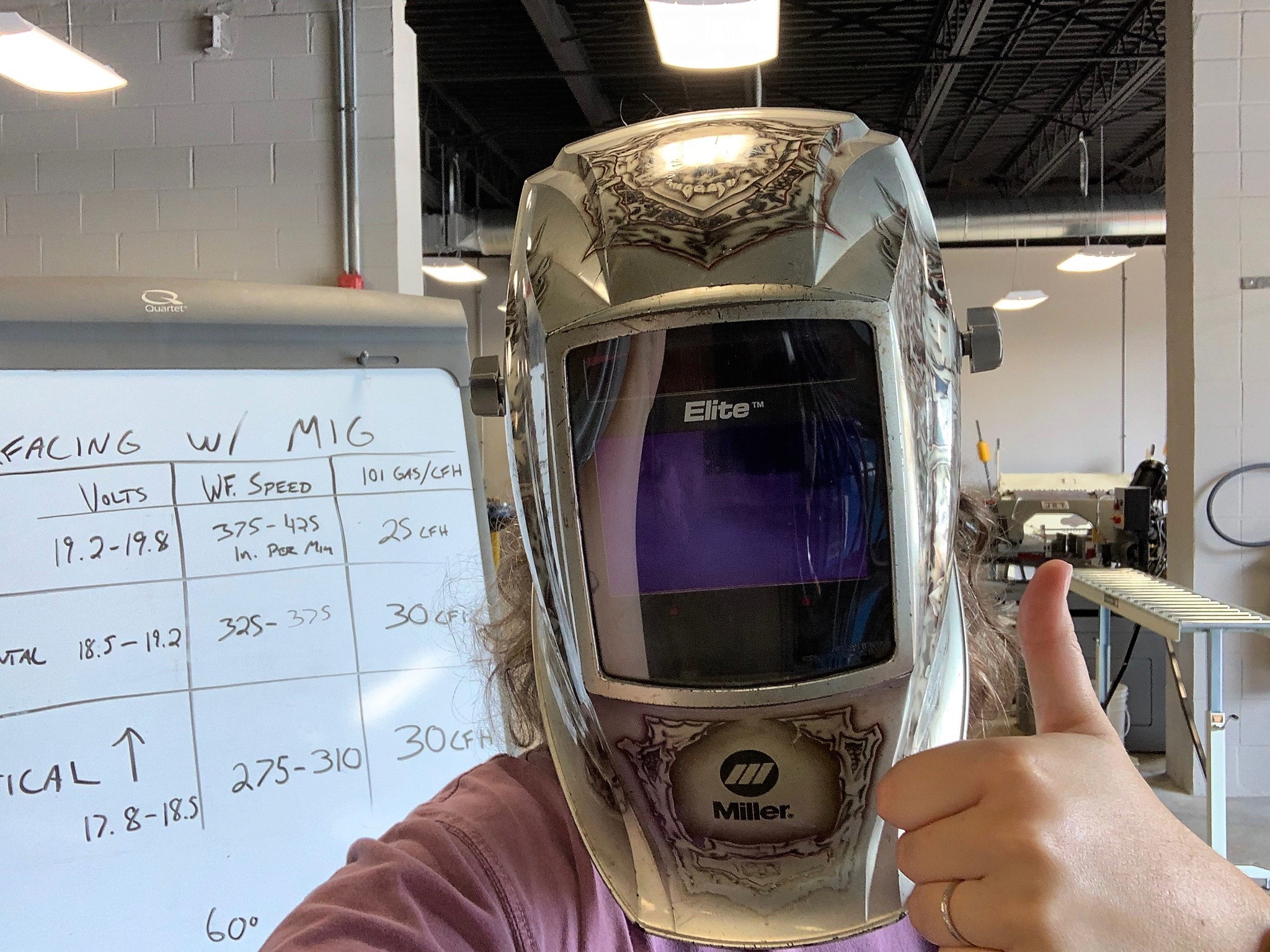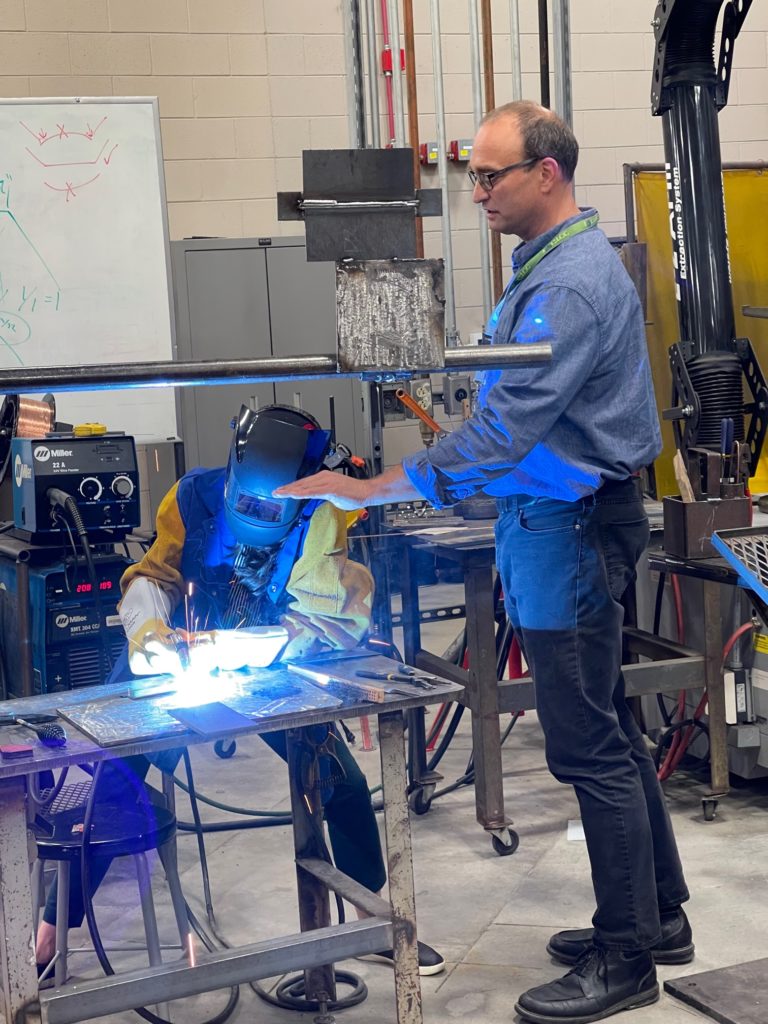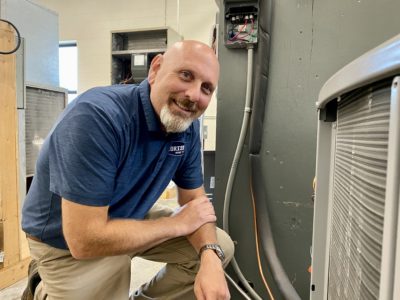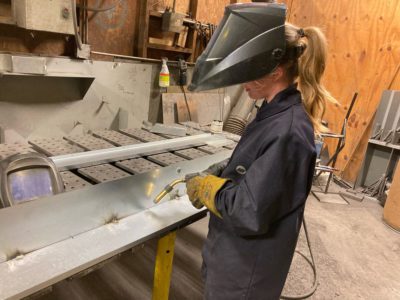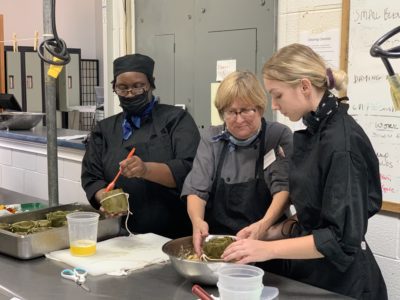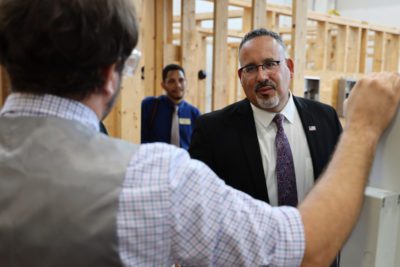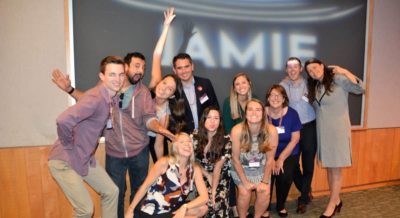
On Aug. 23, EdNC began our blitz of the 58 community colleges across North Carolina.
It’s blitz 2.0 for us, and we are on track to wrap up by the holidays.
With the leadership of the system office in transition and with the outcome of the midterm elections uncertain, by leveraging our team, we can conduct 58 weeks of research in a quarter.
This will allow us to iterate our news, research, and storytelling quickly in the new year ahead of the long session of the N.C. General Assembly.
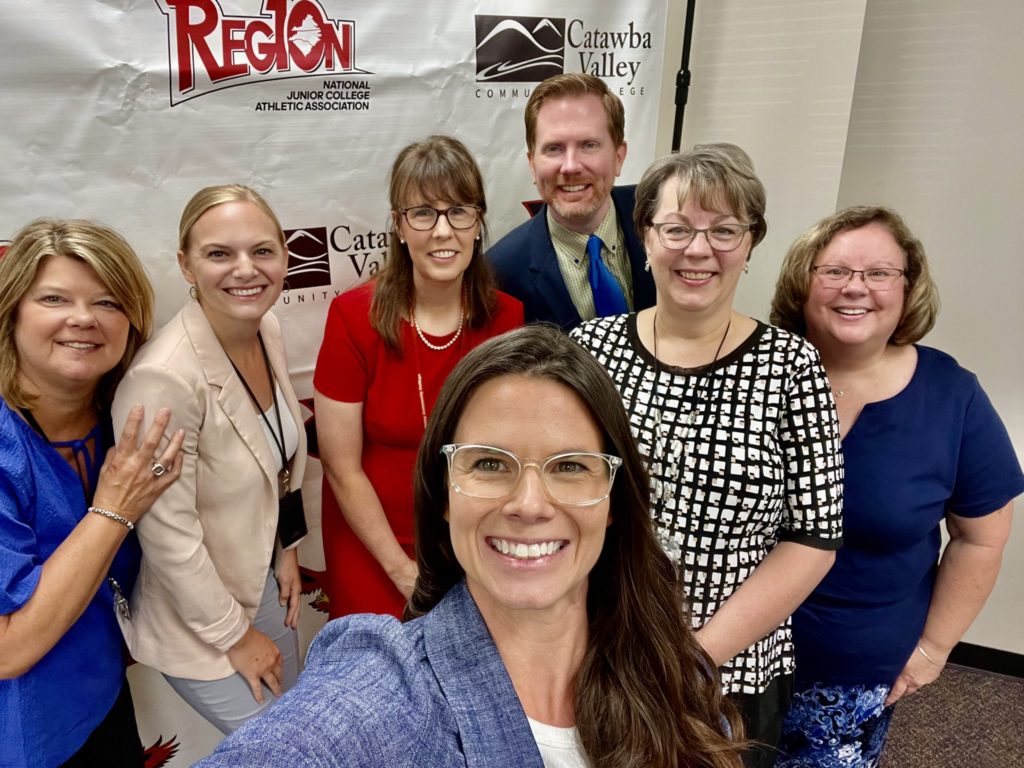
Why do we blitz?
We blitz to test our own assumptions.
We blitz to deepen our relationships with the leadership, faculty, and students at the community colleges.
We blitz to conduct qualitative and quantitative research to inform our news and storytelling.
We blitz to continue to get to know the communities we serve.
And we blitz to invest our dollars in your communities as we stay and play in your neck of the woods.
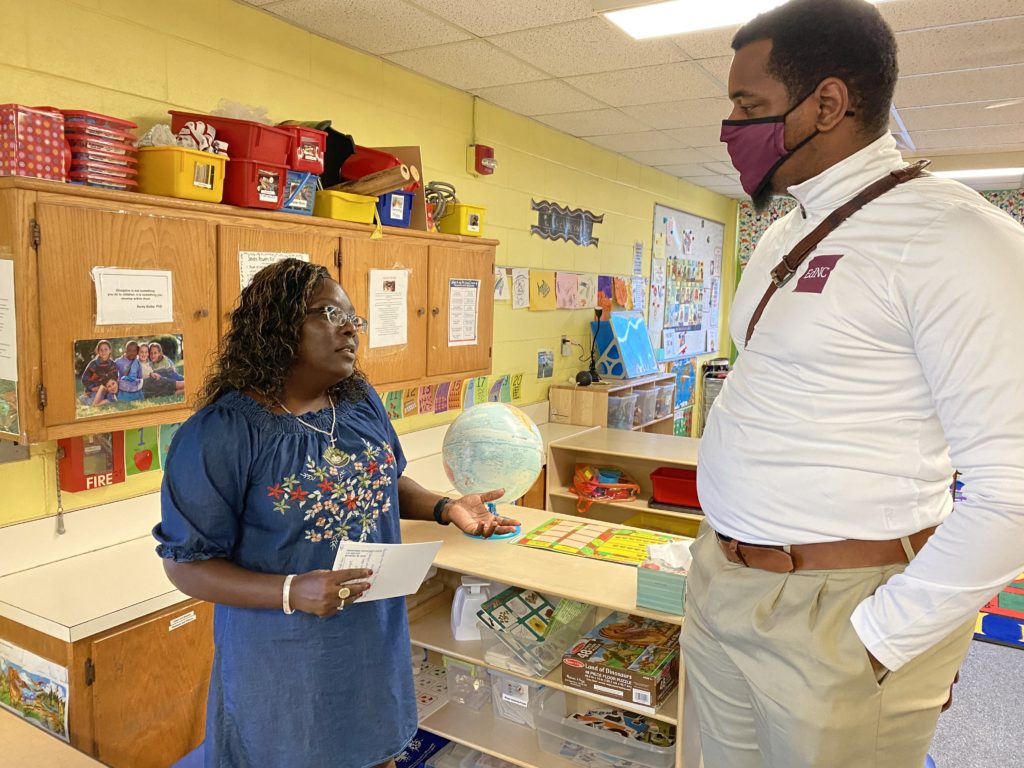
What are we learning?
The team at EdNC is conducting research across these issues:
The economic impact of the 58

This economic impact study of our community college system and of each of the 58 community colleges found a $19 billion annual impact collectively on the North Carolina economy.
You can click on the map and get to the analysis of economic impact for each community college. There you will find an executive summary, fact sheet, main report, and infographic. You will also find program-specific studies of economic impact.
The stories we are publishing on the blitz bring this study to life so you can meet the students, the faculty, the alumni, the small business owners, and other stakeholders who make up the hard and fast economic impact of our community colleges but also move the impact beyond the numbers.
Faculty pay
The community college system in North Carolina continues to rank in the bottom 10 states nationally for faculty pay.
On the blitz, we are meeting with faculty at each of the 58 who are making an impact in their classroom and in their communities.
Meet Ashley Larach, a CPA and accounting instructor at Blue Ridge Community College. Larach earns teaching about half of what she would make in the private sector. Why? “Our students are the most important thing here to us in addition to the community we serve,” she says.
President Pamela Senegal at Piedmont Community College wonders if now is the time for a leapfrog investment in faculty pay.
“Is it keeping pace with inflation? I’m not sure that it is. Is it keeping pace with increases for health care? I’m not sure that it is,” she says. “What might be required is instead of incremental changes a leapfrog investment… There might be a real opportunity in this next long session to do something really powerful to really move North Carolina ahead.”
“North Carolina has always been a leader in so many ways. Why wouldn’t we lead in this?”
— President Pamela Senegal, Piedmont Community College
Early childhood education
North Carolina’s community college system plays two significant roles in early care and education: preparing the teacher workforce and providing child care to students and communities.
Community college by community college, EdNC is studying trends, challenges, and opportunities in training the early childhood workforce; whether colleges provide child care to students, faculty, and the community; and the need for drop-in child care for adult learners.
The early childhood education landscape is in crisis. Low pay, confounded by the pandemic and overall labor shortages, has caused a staffing crisis in a field that supports the critical brain development occurring in the first years of life. We are looking for systemic solutions.

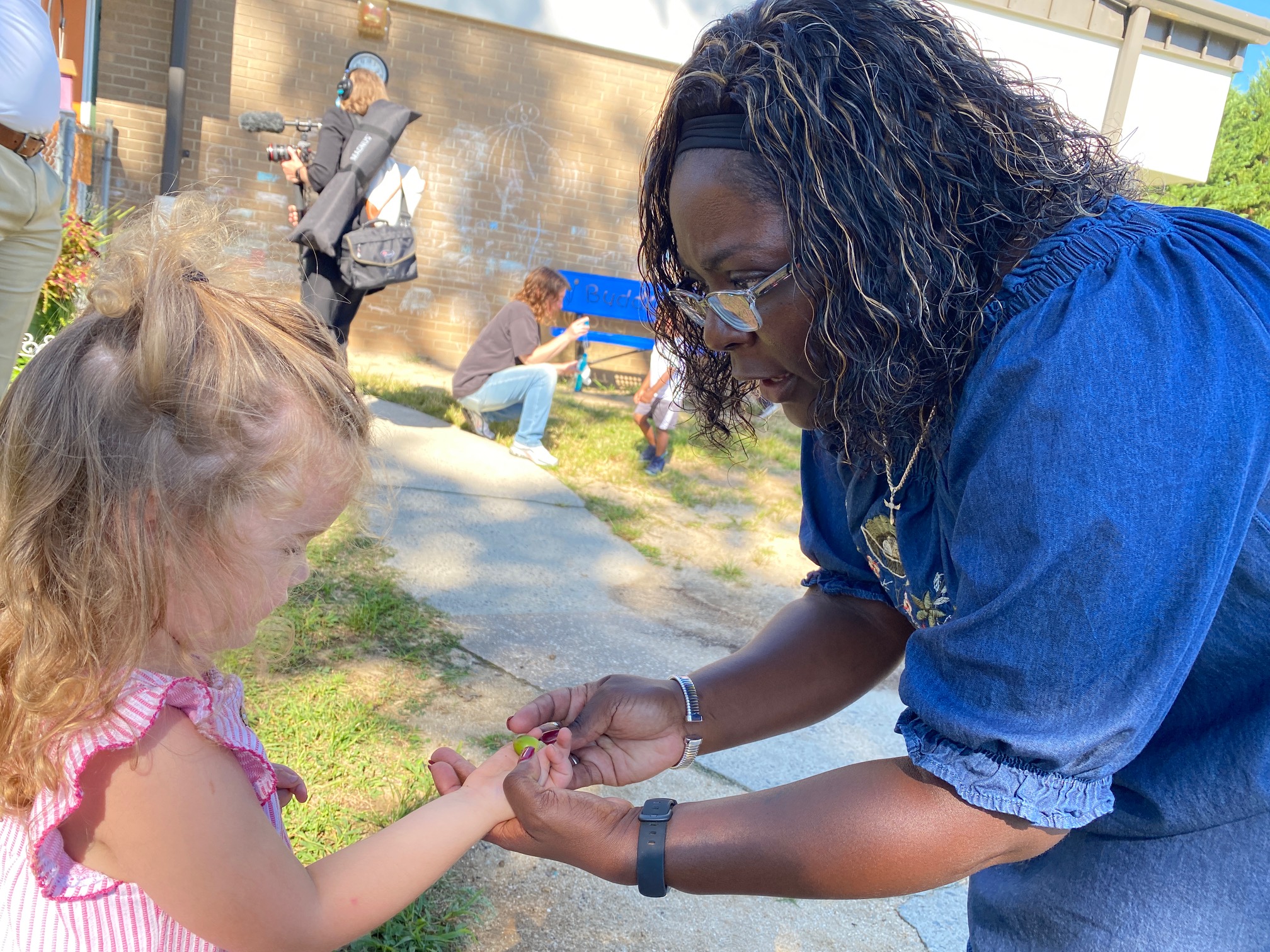
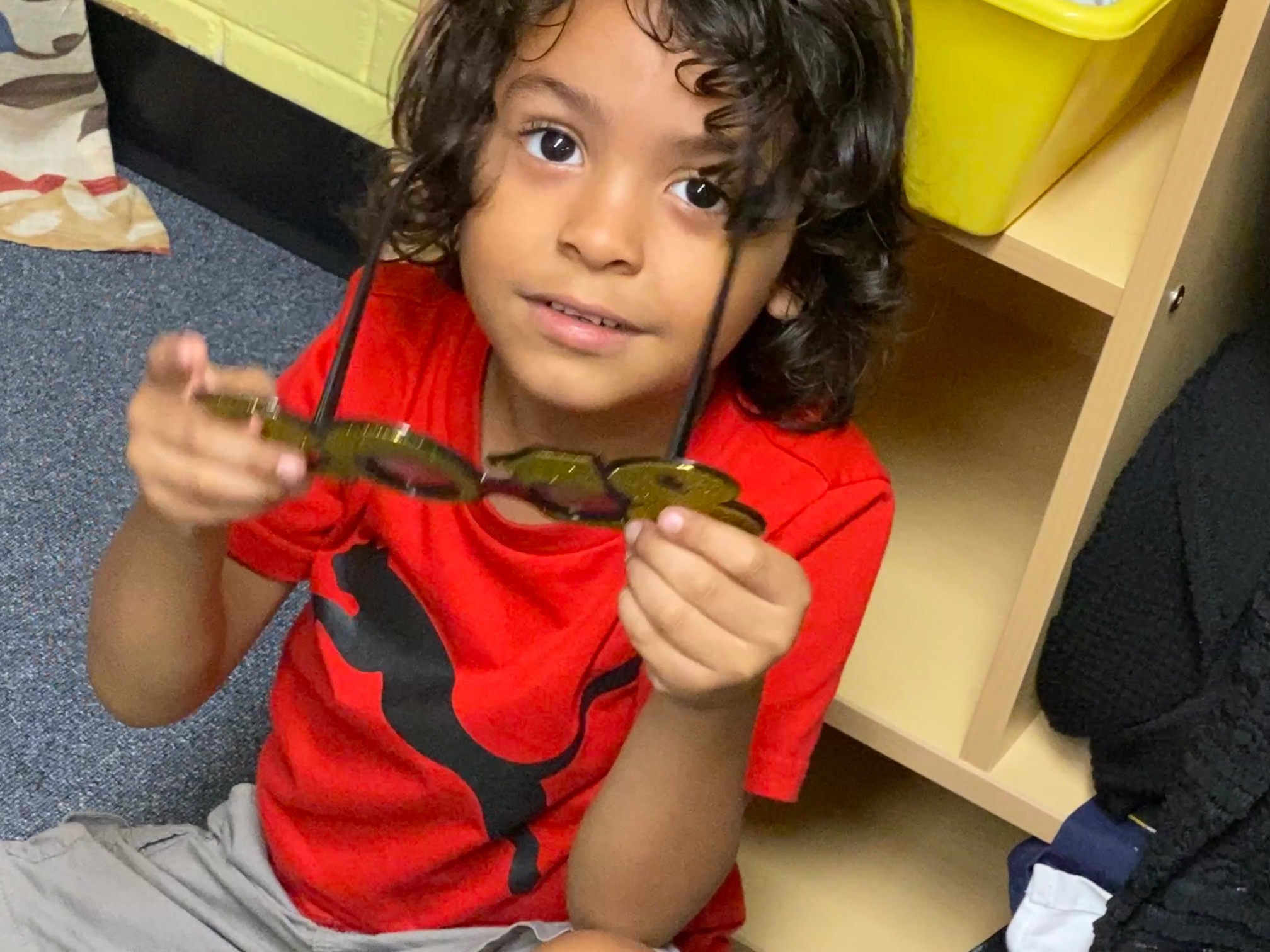
Career and college promise, including early colleges
Career and college promise (CCP) is a dual enrollment program that allows qualified high-school-age students in North Carolina the opportunity to pursue college courses, tuition-free, while they are in high school. CCP is administered by North Carolina Community Colleges.
Three pathways exist under the umbrella of CCP:
- College Transfer (CTP) pathways: provide tuition-free course credits toward a number of college transfer degrees including the Associate in Arts and Associate in Science – generally the more popular degree-seeking options.
- Career and Technical Education (CTE) pathways: provide tuition-free course credits toward a certificate or diploma. Students may also pursue a Workforce Continuing Education Pathway (WCEP) that leads to a State or industry recognized credential.
- Cooperative Innovative High Schools (CIHS): Located on college campuses and provide opportunities for students to complete an associate degree or earn up to two years of college credit within five years. These are often known as early colleges.
County by county, we are mapping how CCP plays out for students across the three pathways, including visits to many of the 117 early colleges that partner with a community college.
Leia Rollins is the coordinator for college high school programs at Piedmont Community College. “I want policymakers to see,” she said, “what CCP has done for all of my students — from a student taking one class to a student who got their degree.”

Federal funding
Since March 2020, there have been three rounds of pandemic-related federal funding for higher education institutions including community colleges. We are documenting how the colleges spent the federal dollars, the challenges and opportunities in administering the funding, lessons learned from the additional dollars, and looming concerns as the funds are spent down.
Thank you
To the 58, thank you for welcoming us, for allowing us to listen and learn from you, for trusting us with your stories.
Alessandra Quattrocchi is the mastermind behind blitz 2.0. She is scheduling all of the two-day visits to each of the 58 community colleges.
Liz Bell and Katie Dukes are the lead researchers on early childhood. Emily Thomas is the lead on career and college promise, and Quattrocchi is also the lead on early colleges. Molly Osborne is the lead on federal funding. Cheyenne McNeill is leading multimedia production.
Thank you to all of you who are opening your doors to us. Thank you to the team for bringing joy to our blitz. Follow along on Twitter at #Impact58.

